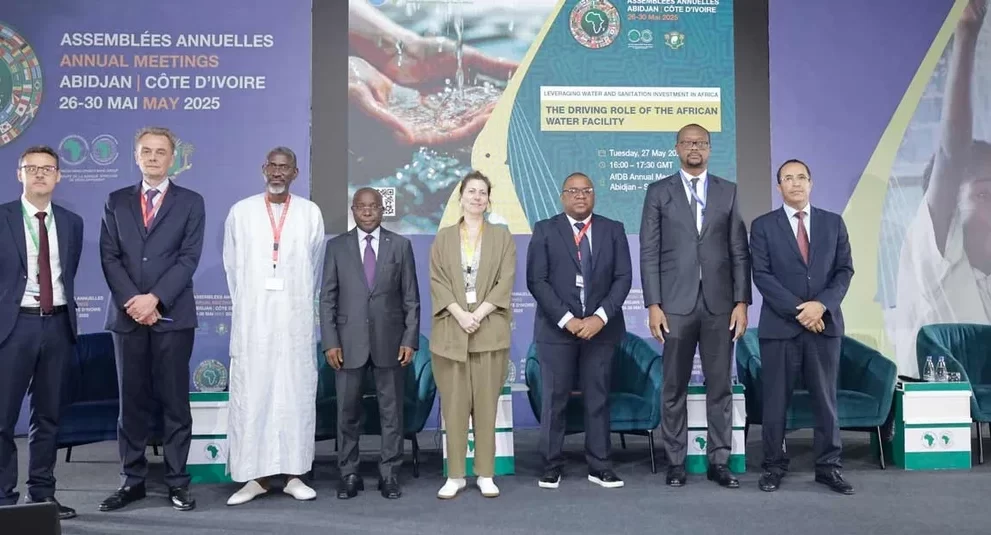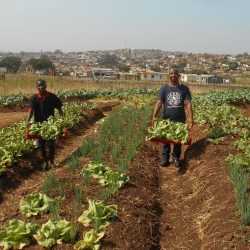Nairobi, Kenya – A critical roundtable at the African Development Bank Group’s 2025 Annual Meetings this week laid bare the daunting challenges of “Leveraging Water and Sanitation Investment in Africa,” highlighting a continent where millions remain without basic access to this most fundamental of human rights.
Policymakers and sector experts, convened by the African Development Bank Group and the African Water Facility on Tuesday, May 27, grappled with the complex issues of universal access, project financing, bankability, and the pivotal role of the private sector and partnerships. The consensus was stark: Africa’s water and sanitation sector is a leviathan undertaking, requiring unprecedented levels of investment and strategic collaboration.
At the heart of the discussion was the African Water Facility (AWF), a crucial project preparation fund now paradoxically described as a “victim of its success.” Samuel Blazyk, interim coordinator of the AWF, revealed the staggering demand for its services, with over 400 project proposals flooding in. Yet, out of 80 projects that met the initial conditions, only a meagre 33 were deemed priority. This bottleneck underscores the urgent need for enhanced capacity and resources to translate ambitious plans into tangible projects.
The AWF, an initiative of the African Ministers’ Council on Water and managed by the African Development Bank, has been instrumental in harnessing financing for water and sanitation infrastructure across the continent. Since its inception in 2006, it has disbursed a remarkable €220 million in grants across 148 projects, leveraging an impressive €2.1 billion in downstream investment. These efforts have directly benefited 11.3 million people with improved sanitation, provided 23.2 million with better access to drinking water, and irrigated two million hectares of land. The facility’s current pipeline, valued at €90 million, stands to benefit 15 African nations.
However, the sheer scale of the problem continues to dwarf these achievements. Bouake Fofana, Côte d’Ivoire’s Minister of Hydraulics and Sanitation, articulated the multifaceted hurdles facing the sector, pinpointing the critical need for modern, sustainable, and inclusive infrastructure, coupled with robust governance, increased financial allocation, and significant human and technical capacity building. He underscored the AWF’s “central role in ensuring high-quality, technically viable projects that are attractive to partners,” framing it as an “African tool supporting African priorities.”
Mohamed El Azizi, the Bank Group’s Director General for North Africa and a former Director of the AWF, echoed these sentiments, stressing the imperative of innovation in forging new partnerships to tackle the funding gap.
On the technical front, panellists delved into the intricacies of project design, bankability, sector governance, and strategies for luring private investment. Ousseynou Guène, Head of the Water and Sanitation Division at the African Development Bank, lamented the persistent inadequacy of studies and frustrating delays in resource consumption. He observed that while some countries are proactively integrating investment components, a pervasive reliance on lenders for upstream preparations remains a significant hurdle.
The human toll of this crisis was starkly highlighted by Richard Matikanya, Deputy Executive Director of the Children’s Investment Fund Foundation (CIFF). “Of the 400 million people who have no access to water, 50% are children,” he warned, stressing the critical need to “explore more partnerships” with institutions like the African Development Bank.
Guène further emphasised the need for early and comprehensive consultations with partners, particularly to better integrate climate risks into project design—a crucial element for attracting much-needed climate financing, which Africa currently fails to sufficiently harness.
The AWF’s strong reputation among its partners was affirmed by Agnes Moser, Advisor to the Executive Director of the African Development Bank, representing Argentina, Austria, Brazil, Japan, and Saudi Arabia. Speaking on behalf of the Austrian Finance Minister, she lauded the facility’s capacity to prepare high-quality projects and attract investment.
The session concluded with Tarek Bouhlel, Director General of African Cooperation at the Tunisian Ministry of Economy and Planning, showcasing Tunisia’s ambitious Strategy 2050 for Water and Sanitation, offering a potential benchmark for other African nations striving to quench the continent’s thirst for sustainable water solutions.




